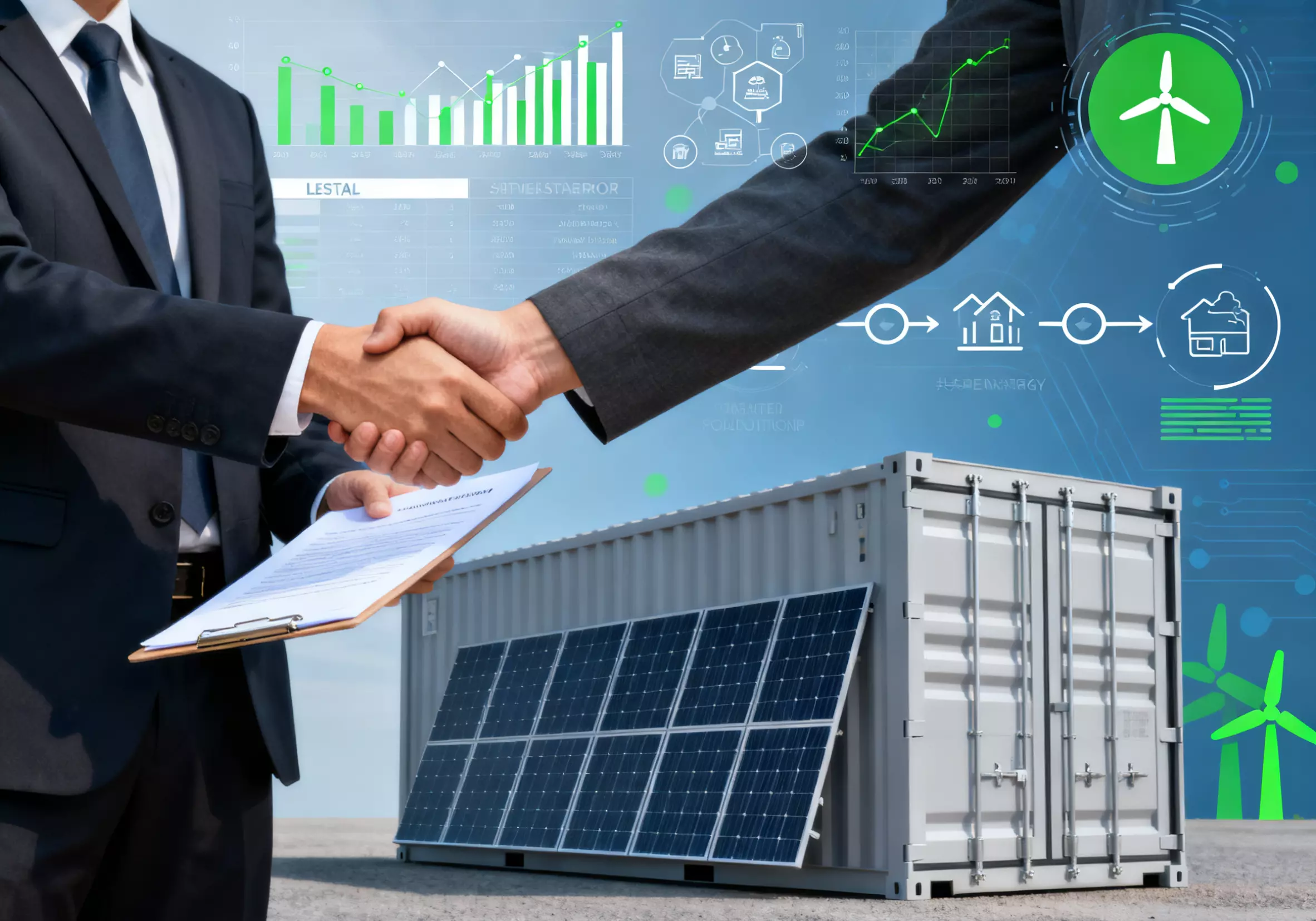Photovoltaic containers are more than just equipment: the business of leasing and sharing energy

Do we have to buy complete photovoltaic and energy storage systems? Is there a more flexible, asset-light approach to making clean energy accessible?
The answer is leasing photovoltaic and energy storage equipment.
From "Selling Equipment" to "Leasing Energy": A New Business Logic is Emerging
In the past, companies building photovoltaic power plants or energy storage systems often had to invest millions of yuan in equipment. Today, the emergence of the "Energy as a Service" (EaaS) model has completely shattered this barrier to entry.
Under this model, companies don't need to purchase photovoltaic containers; instead, they simply sign a lease agreement and install mobile green energy containers within their campus or factory. These modules integrate photovoltaics, energy storage, inverters, and an EMS energy management system, enabling instant power generation and storage scheduling.
Energy service providers are responsible for system investment, operations, maintenance, and upgrades. Customers simply pay a monthly "energy rental fee" to enjoy a stable supply of clean electricity. According to Statista, the global solar leasing service market is expected to grow from $17.9 billion in 2023 to $89 billion in 2033, with a ten-year compound growth rate of 17.4%. This indicates that the business model for photovoltaics and energy storage is shifting from "asset trading" to "energy operations."
Photovoltaic Containers: From Project Assets to Mobile Energy Units
Compared to traditional rooftop photovoltaic systems, photovoltaic container houses offer the greatest advantages of flexibility and high integration.
Like "energy building blocks," they can be quickly deployed and relocated at any time, making them ideal for temporary power needs such as construction sites, cultural and tourism projects, and emergency bases.
Under the energy storage leasing model, a standardized container system can be installed and connected to the grid within 48 hours. Companies only need to pay a small deposit to start supplying green electricity, saving investment and accelerating project implementation.
For example, in a new energy industrial park in Zhejiang Province, five 50kWh photovoltaic container systems with energy storage are being leased. Project owners, without having to purchase equipment and simply paying a fixed monthly rental fee, can save approximately 380,000 yuan in electricity bills annually and reduce carbon dioxide emissions by approximately 120 tons. This "plug-and-play" portable energy solution is an ideal starting point for small and medium-sized enterprises (SMEs) to transition to a low-carbon economy.
Sustainable Profitability: A New Value Chain of Shared Energy
The appeal of photovoltaic leasing lies not only in its reduced initial investment but also in the emergence of new business models.
Through the "Energy Sharing" platform, multiple tenants can share a set of photovoltaic container systems. The platform provides intelligent billing based on electricity consumption, enabling "pay-as-you-go" payments.
In a demonstration project at a logistics park, the electricity needs of eight resident companies were aggregated. Using an intelligent EMS dispatching system, excess energy generated by photovoltaic power generation during the day was stored in container energy storage cabinets and released uniformly at night, achieving peak and valley reduction and optimizing electricity usage.
Results showed that the project achieved an average peak reduction rate of 40%, reducing overall energy costs for businesses by approximately 27%.
"Mobile Power Stations" in Disaster Relief
During Typhoon Haikui's 2024 approach, a temporary command center at a coastal port in Fujian province faced a power outage due to a power outage. Two mobile photovoltaic energy storage containers deployed by a local energy service provider were quickly connected to the grid, restoring lighting and communications in just 30 minutes, buying crucial time for flood control operations.
According to subsequent statistics, the system provided a cumulative 7.2MWh of electricity over three days, equivalent to reducing CO2 emissions by approximately 4.5 tons. This case demonstrates that the value of photovoltaic containers lies not only in energy savings but also in their energy resilience at critical moments.
The Future of Green Energy is "Asset-Light"
As clean energy enters the "service" phase, companies no longer need to invest heavily in assets, nor do they have to bear the risk of equipment depreciation and technical risks.
The combination of photovoltaic containers and energy storage leasing makes energy mobile, shareable, and billable, just like water and the internet.
This represents an innovation in business models and a shift in energy thinking.
Under this trend, companies with energy storage system integration and intelligent energy management capabilities are becoming the primary force in the "Green Energy as a Service" era. If you're looking for a one-stop PV energy storage solution, please contact us.
We offer a comprehensive product and service chain, from PV container design and energy storage system integration to an EMS intelligent dispatching platform. We help businesses achieve a truly low-carbon future with lower investment and higher energy efficiency.
